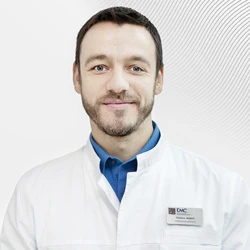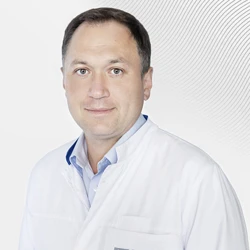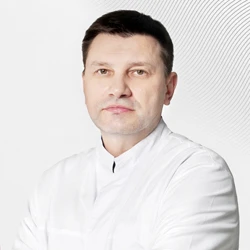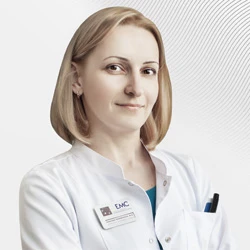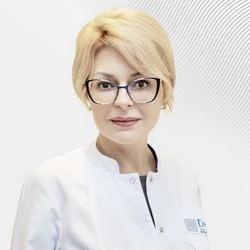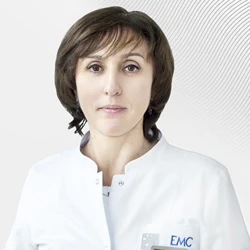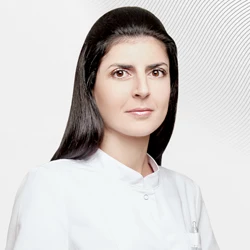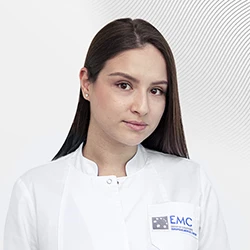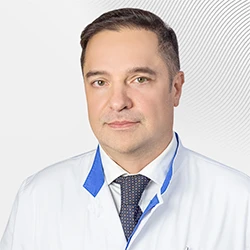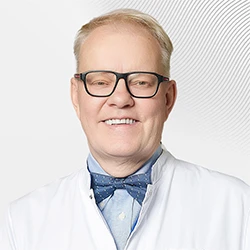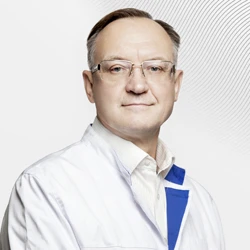Treatment of rectal cancer
The Institute of Oncology of the European Medical Center is one of the leading medical institutions in the country for the treatment of colorectal cancer.
We use the best modern methods of tumor diagnosis and staging, including MRI and PET/CT, safe chemotherapy drugs and radiation therapy equipment unique in Russia. The advanced approach implemented by our specialists to the treatment of locally advanced colorectal cancer, adopted in the world's leading clinics, significantly reduces the volume of surgery, often eliminates the need for patients to install a disabling colostomy and increases the three–year survival rate without disease return in 85% of patients, and in 8% - leads to the complete disappearance of the tumor and does not require surgery.
Rectal cancer is a tumor that develops from abnormal epithelial cells lining the inner surface of the terminal gastrointestinal tract. Its cells can grow into surrounding tissues, spread with blood flow and lymph throughout the body and create metastases in its various areas – additional neoplasms.

Rectal cancer treatment methods
Treatment tactics are selected for each individual individually, taking into account age, health status, presence of other severe disorders, stage of the disease, size and the location of the tumor, the properties of its cells, and other important factors, and may include:
-
Radiation therapy is the destruction of cancer cells by high–energy rays or radioactive particles.
-
Surgery – removal of the entire neoplasm or part of it.
-
Chemotherapy is the use of drugs that kill tumor cells, stop their division or growth.
A modern approach to the treatment of colorectal cancer
Until recently, surgery was the main method of radical treatment of rectal cancer. Unfortunately, such treatment often leads to disability of the patient and the need for constant use of a stoma.
Recently, a new approach has been developing in the world's leading clinics, aimed at maximizing the preservation of tissues and organs. The use of so-called total neoadjuvant (preoperative) therapy makes it possible to reduce the tumor or completely eliminate it, while maintaining the patient's quality of life at the highest possible level.
With a sharp reduction in the focus of the disease, an organ-preserving operation is performed, which often avoids surgical intervention and the need for subsequent colostomy.
In some cases, when the tumor is completely destroyed, patients do not require surgical care.
The effectiveness of the approach has been confirmed by the results of a number of studies. According to analysis 7 scientific papers, total neoadjuvant therapy (TNT), including chemo- and chemoradiotherapy followed by surgical treatment, gives better results than the standard scheme involving the use of chemoradiotherapy, subsequent surgery and adjuvant (postoperative) chemotherapy.
2,416 people participated in these studies, with an average age of 57-69 years. Their results showed that 29.9% of patients in the TNT-treated group and only 14.9% of those who were prescribed standard treatment for locally advanced colorectal cancer, whose cells had already sprouted into the nearest tissues, managed to achieve a complete pathological response or absence of signs of the disease.
In addition, sphincter-preserving operations are successfully performed in the EMC. In this case, TNT techniques are used, as well as neoadjuvant chemoradiotherapy with consolidating or remission-fixing and relapse-preventing chemotherapy. The safety of such techniques has been scientifically proven.
Thus, the study showed that the overall survival rate of patients with locally advanced rectal cancer receiving similar treatment is 85.7%, and the percentage of sphincter preservation increases from 25% to 87.5%.
At the same time:
-
the three-year disease-free survival rate, or the probability of living 3 years without a return of the disease, is 89.7%;
-
The three–year survival rate with organ-preserving treatment is 85.7%;
- the three–year survival rate without a stoma is 82.5%.
EMC is Russia's only international-level oncology clinic
- International team of doctorsLeading experts from Israel, Europe, and the USA with many years of experience. Treatment according to international protocols
- The fastest possible diagnosisDiagnosis in 1-2 weeks, including detailed pathomorphological verification
- Innovative and unique treatment methods for RussiaOncosurgery of any complexity, stereotactic radiosurgery, the latest HyperArc technology for the treatment of brain metastases
- Selection of personalized treatmentA system for selecting drug therapy based on the most complete genomic profiling of the tumor
- Consultations with expertsCollaboration with doctors from leading cancer centers in the USA: Memorial Sloan Kettering, MD Anderson Cancer Center, John Hopkins Oncology Center
Radiation therapy in the treatment of colorectal cancer
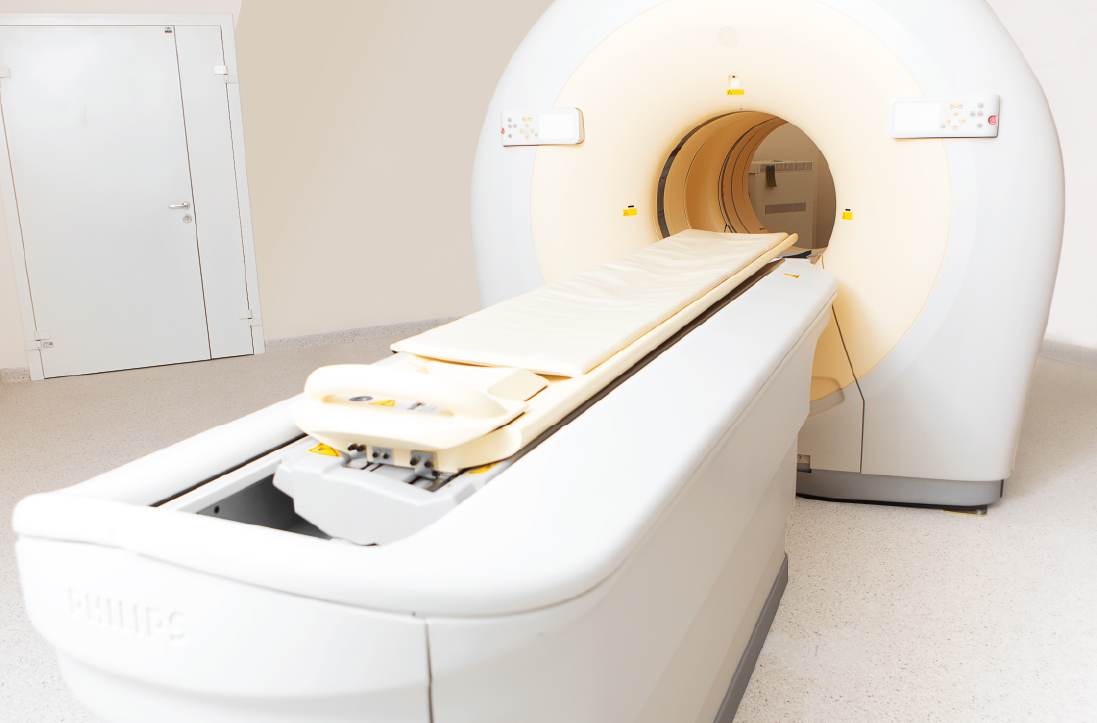 Radiation therapy, or the destruction of tumor cells by high-energy rays, is used:
Radiation therapy, or the destruction of tumor cells by high-energy rays, is used:
-
neoadjuvant – before surgery, often in conjunction with chemotherapy, to reduce the volume of the neoplasm and facilitate its removal;
- adjuvant – after surgery to destroy all abnormal cells and prevent a possible return of the disease;
- intraoperative – in some cases, radiation is carried out directly during surgery;
- alone or together with chemotherapy instead of surgical treatment;
- to improve the quality of life in the event that the developing disease causes intestinal blockage, causes bleeding or pain;
- when cancer cells spread, for example, to bones, brain and lungs;
- to destroy the tumor that has re-developed in the pelvic region after treatment.
The European Medical Center uses Russia's only state-of-the-art radiation therapy system Varian EDGE. It allows you to affect tumors of any size and shape with an accuracy of fractions of a millimeter, remove even the most complex tumors without damaging healthy tissues, and treat multiple metastases in one session.
The EDGE accelerator has the highest dose rate among all existing radiosurgical systems, which reduces not only the duration of the session, but also the likelihood of errors due to changes in the position of the tumor.
Surgical treatment of rectal cancer
Today, several types of operations are used in the fight against rectal tumors, including:
-
Polypectomy is the removal of polyps, or overgrowth of abnormal tissues of the intestinal mucosa. It is often performed during colonoscopy.
- Local excision is the removal of a neoplasm and a small amount of healthy tissue surrounding it. It is used if cancer is found only on the inner surface of the rectum, but its wall is not affected.
- Resection is the removal of the affected area of the intestine and the nearest healthy tissues.
After removing the tumor, healthy intestines are stitched together, or the surgeon creates a stoma, an opening through which waste products are removed from the body.
Chemotherapy in the treatment of lung cancer
Chemotherapy is drugs that are taken orally, injected into a vein or muscle, enter the bloodstream and destroy tumor cells:
- Neoadjuvant "chemistry", possibly used in conjunction with radiation therapy, is prescribed before surgery to reduce the neoplasm and facilitate its removal.
- Adjuvant surgery is performed after surgery to destroy all abnormal cells, including those that have gone beyond the rectum. This tactic reduces the likelihood of the disease returning.
- When cancer spreads to other organs, such as the liver, chemotherapy is prescribed to shrink the tumor and relieve the symptoms it causes. Such treatment often improves well-being, increases the quality and duration of life.
"Chemistry" is conducted in cycles, each of which is followed by a rest period necessary for the body to recover. The duration of each of them is often 2-3 weeks, and the average total duration of taking medications is from 3 to 6 months.
The drug delivery method is selected individually for each patient:
- Systemic treatment involves injecting drugs into a vein or taking them orally in the form of tablets or liquids. In this case, they enter the bloodstream and spread to almost all areas of the body.
- During regional chemotherapy, drugs are injected into the artery feeding the disease site. They affect only a limited area, so that fewer cell-destroying substances enter other tissues.
Chemotherapy can cause a number of side effects, such as changes in blood composition, fatigue, hair loss, loss of appetite and weight, nausea and vomiting, diarrhea, skin and nail changes.
In the European Medical Center, treatment is carried out with premedication – supportive drugs that minimize the occurrence of such complications. In addition, our clinic uses modern technologies that prevent hair loss.
Immunotherapy in the treatment of colorectal cancer
Immunotherapy restores or strengthens a person's own immunity, helping him to identify and resist tumor cells. Some patients are prescribed immune checkpoint inhibitors. Such agents block "checkpoints" – proteins produced by abnormal and healthy cells that prevent the body from attacking and destroying them. When they are blocked, the immune system more effectively detects and destroys tumor cells. They are prescribed to some patients with metastatic rectal cancer that has spread its cells to other organs and tissues.
There are 2 types of such treatment used today:
- Inhibitors of CTLA-4– a protein on the surface of immune cells that controls the reactions of our natural defenses. When CTLA-4 attaches to proteins on a cancer cell, the body does not perceive the abnormal cells as a danger. Drugs such as ipilimumab attach to CTLA-4 and allow immune cells to kill tumor cells.
- PD-1 and PD-L1 inhibitors. PD-L1 is a protein present in some types of cancer cells. When the PD-1 protein attaches to PD-L1, it prevents immune cells from attacking the neoplasm. The PD-1 and PD-L1 inhibitors pembrolizumab and nivolumab prevent them from interacting and enable the protective cells to destroy the tumor.
Targeted therapy for colorectal cancer
Targeted therapy is modern drugs that detect and destroy cancer cells that practically do not damage healthy tissues.
Monoclonal antibodies are proteins of the immune system that can attach to various "targets" – compounds or substances produced by cancer cells or cells that promote their growth.
Such agents are capable of killing abnormal cells, stopping their growth and preventing their spread. They are used as an independent treatment, as well as as a means of delivering drugs or radioactive material to the neoplasm cells.
Several types of monoclonal antibodies may be prescribed to patients diagnosed with rectal cancer:
- Inhibitors of VEGF – vascular endothelial growth factor, such as bevacizumab and ramucirumab. They do not allow abnormal cells to produce VEGF, which stimulates the growth of additional blood vessels necessary to nourish a growing tumor. These substances do not completely destroy the neoplasm, but they do not allow it to develop and grow.
- EGFR inhibitors are the epidermal growth factor receptor, which include cetuximab and panitumumab. EGFR are proteins present on the surface of certain cells, including cancer cells. When epidermal growth factor attaches to EGFR on the cell surface, it stimulates cell growth and division. EGFR inhibitors do not allow them to attach, and they slow down the development and reproduction of tumor cells.
Angiogenesis inhibitors are drugs that stop the growth of new blood vessels necessary for the growth of tumors. Drugs such as regorafenib are prescribed to fight rectal cancer that has spread to other areas of the body and is not responding to other treatments. This substance blocks the action of certain proteins, including EGFR, and prevents the development of abnormal cells and the formation of additional blood vessels.
Protein kinase inhibitors that block the protein necessary for cancer cell division. These include the drug encorafenib, which stops the activity of proteins produced by altered genes.
Rectal cancer treatment in EMC
The European Medical Center offers its patients effective advanced methods for the diagnosis and treatment of oncological diseases.
- Initial diagnosis is made in 24 hours.
- An individual approach to diagnosis and treatment with the participation of a team of highly qualified doctors from various specialties, including oncologists, chemotherapists, radiotherapists, and colorectal surgeons.
- The latest generation of equipment that allows detecting all foci of the disease with maximum accuracy, includingMRI and PET/CT.
- Russia's only latest Varian EDGE radiation therapy system, which allows the removal of tumors of any size, shape and location without damaging healthy tissues.
- Original safe medicines from world manufacturers.
- The highest possible quality of life, support of the body at all stages of treatment, minimization of possible complications and side effects.
- In cases where a complete cure is not possible,palliative care, including home visits to improve quality and life expectancy.
- Maximum comfort and any kind of support, including psychological, for both patients and their loved ones.
Why the EMC
The first and only clinic in Russia, created in the image of the world's leading clinics
EMC is a multidisciplinary center offering patients a high level of medical services and a personalized approach
Worldwide recognition and awards
 Learn more
Learn more
Worldwide recognition and awards
 Certificates and licenses
Certificates and licenses
Make an appointment for a consultation
Specify your contacts and we will contact you to clarify the details
Reviews
and new products of the EMC
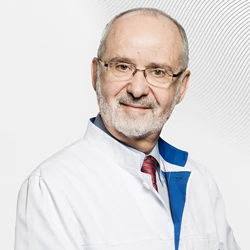

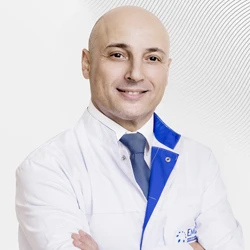
.webp)

